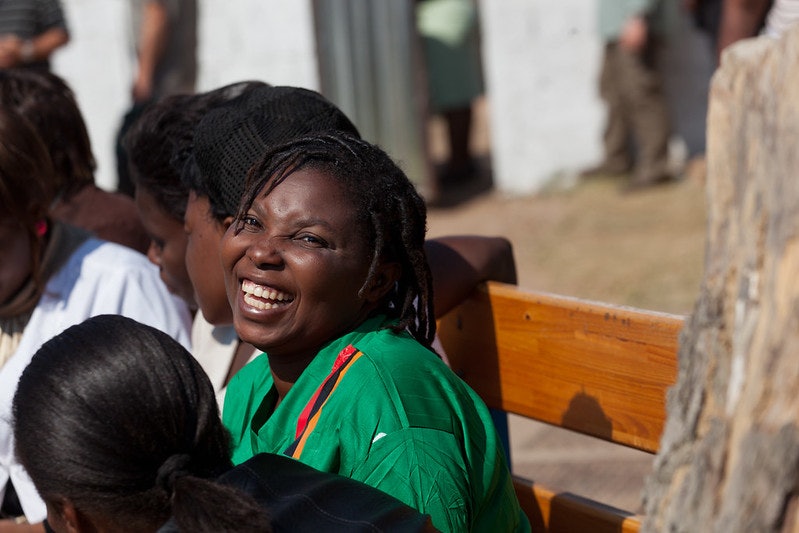February 24 marks the two-year anniversary of Russia’s catastrophic invasion of Ukraine. Prior to the conflict, 260,000 Ukrainians were living with HIV – making it home to the second largest AIDS epidemic in Eastern Europe and Central Asia. The Ukrainian government, civil society, and partners like the President’s Emergency Plan for AIDS Relief (PEPFAR) implemented one of the largest and most effective responses to HIV/AIDS in the region.
For over seventeen years, Ukraine has partnered with PEPFAR to strengthen health systems and public supply chains to address the devastating impact of HIV in the country – and they’ve gone above and beyond what was expected. During the COVID-19 pandemic, PEPFAR-supported partnerships allowed the country to continue its progress toward ending HIV/AIDS while also leveraging existing health platforms to respond to the pandemic.
The United Nations Office for the Coordination of Humanitarian Affairs estimates that over 14.6 million people in Ukraine will be in dire need of humanitarian assistance in 2024. The country also faces the largest human displacement crisis in the world since World War II. But partnerships and the determination of the Ukrainian people have allowed the country to persevere.
During the Bush Institute’s PEPFAR at 20 celebration in February 2022, Dmytro Sherembei and Valeriia Rachynska shared the work of their organization 100 Percent Life. As the largest patient-led organization in Ukraine, 100 Percent Life works to provide full access to treatment for people living with HIV. Dmytro shared that since the full-scale invasion, health workers have delivered medicine by boats, cars, and on foot – even risking their lives to deliver medication in territories temporarily controlled by Russian forces.
In 2023, UNAIDS projected that more than 3,000 internally displaced persons living with HIV in Ukraine had to find services in a new place. Successful HIV treatment requires consistent and specific use of antiretrovirals. If someone stops treatment, they can become resistant to these medications. This not only poses deadly consequences for someone living with HIV but also risks spreading strains of HIV that are more difficult to treat – making PEPFAR’s work in Ukraine all the more vital.
Ukraine has a strong record of self-financing for antiretroviral medication; however, Russia’s invasion has put significant pressure on the country’s economy. Bilateral partnerships have successfully addressed budgetary deficits, and last year PEPFAR’s operational plan included an increase in funding for antiretrovirals to ensure that Ukrainians living in conflict can continue to receive this lifesaving medication.
But even with financing, getting medicine to patients throughout a country in the midst of active armed conflict is difficult. Civil society partnerships have made incredible progress to fill these gaps.
This is where organizations like 100 Percent Life have the biggest impact. Community health workers can go where governments and bilateral and multilateral organizations cannot. They bridge the divides between the patient and the provider. They are also the largest asset for creating well-tailored programming and policy.
Over half of PEPFAR’s funding goes to local organizations, many at the community level. This integrated approach brings together communities, governments, and funders to design programs that meet the needs of the people. Over the last 20 years, this has also impacted democracy, civility, and economic growth.
In 2024, Ukrainians continue to fight for their freedom and well-being. During PEPFAR at 20, Ambassador Oksana Markarova urged us to look beyond the numbers. “It’s not about a line in the budget,” she said. “It’s about [the] 150,000 lives that have been saved, that have been able to live [a] full life, and that are… able to fight today. To fight for their homes, to fight for their loved ones, to fight for their freedom, to fight for our democracy.”
PEPFAR’s work in Ukraine is proof that the program saves lives – even in the midst of conflict – and community partners like Dmytro and Valeriia are shining examples of the courage, bravery, and dedication of the Ukrainian people.































